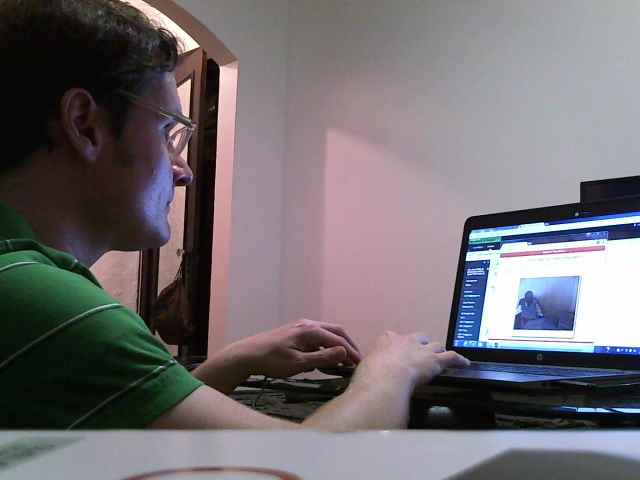Full-time Speech faculty set a goal of increasing collaboration and sharing resources with adjunct faculty. We developed an online course shell to be used in the introductory Speech course that helps us meet those goals. Here’s what we learned from the process.
Listen
Perhaps the most important advice we can offer is to listen to your colleagues. One of the biggest pieces of wisdom expressed by our full-time faculty was that we provide adjuncts with flexibility and choices. Toward that goal, we created a large number of resources for adjunct faculty to pick and choose from, rather than require them all to teach exactly the same course with the exact same papers, exams, and assignments. Therefore, we designed activities, discussion boards, quizzes, and journals/short paper assignments that adjunct faculty could use, with the understanding that not everything could or should get used every time, by every section. We saw ourselves as developing resources for our colleagues, rather than attempting to control their future teaching efforts. Listening to our colleagues’ advice made our course stronger.
Innovate
A key objective for us was the importance of having high standards and using our own ingenuity to innovate. Perhaps our most important decision was choosing the proper textbook. While many publishers offered flashy materials, we ultimately choose our textbook based on its rigor and depth.

Related to that, we were not really impressed by any of the course materials, such as activities and short papers, offered by any of the other publishers. As a result, we largely created the activities, discussions, and assignments for our online course ourselves, and only used the best and most captivating publisher content that we encountered. Our ability to do so was aided by our decision to maintain as much content as possible (almost the entire course) on the College of DuPage Learning Management System, Blackboard, rather than on a textbook publisher’s website.
Collaborate
Further, we encourage a collaborative approach to course design. Designing a course shell is a big task for one faculty member to take on, so working with a colleague you like and respect—as much as we like and respect one another—is a great idea! We all have different areas of specialization, and it is unlikely that one faculty member will be an absolute expert in all of the content. Because of this, we each took on responsibility for different units and sections of the course, while still sharing ideas with each other. This made the workload easier to manage and also gave us someone to offer us vital feedback and support when the going got rough.
Use Learning Technologies
Finally, it is important to work with Brett Coup and his Learning Technologies staff at College of DuPage. They helped us gain insights on how to optimally utilize Blackboard and we called on them throughout the design process to give us feedback about what we were doing well and what might need further development.  For example, midway through our course design, we discovered a rubric from the Learning Technologies office that had a lot of great ideas for online course development. Thankfully, our instincts corresponded with the goals of the Office of Learning Technologies and we did not have to make any major changes, but it was nice to know our course was meeting best practices in the online learning environment. We did learn that it’s important to include anonymous student feedback within the Blackboard course, which we had not thought of before looking over the checklist. Small ideas can have great impact, so we recommend meeting early and often with Learning Technologies.
For example, midway through our course design, we discovered a rubric from the Learning Technologies office that had a lot of great ideas for online course development. Thankfully, our instincts corresponded with the goals of the Office of Learning Technologies and we did not have to make any major changes, but it was nice to know our course was meeting best practices in the online learning environment. We did learn that it’s important to include anonymous student feedback within the Blackboard course, which we had not thought of before looking over the checklist. Small ideas can have great impact, so we recommend meeting early and often with Learning Technologies.
Ultimately, we learned a lot from our collaboration and developed what we hope will be a great resource for future adjunct faculty.


